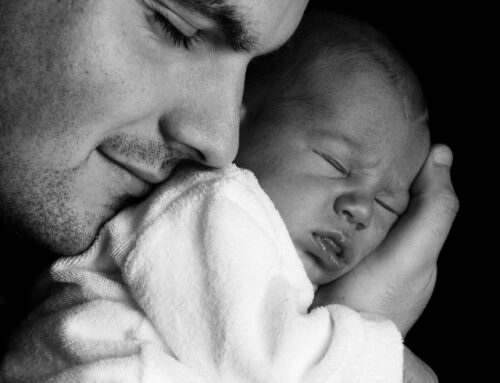 Each adoption is unique, and the world of adoption is ever-evolving. Today, many birth mothers are choosing to begin their adoption journey by breastfeeding or pumping their breastmilk. I’d like to introduce you to four such women: Christina, Breanna, Alyssa, and Emm. I had the privilege of asking each of them 12 questions pertaining to their reasons for breastfeeding or pumping for their birth child. Here is what each of them had to say:
Each adoption is unique, and the world of adoption is ever-evolving. Today, many birth mothers are choosing to begin their adoption journey by breastfeeding or pumping their breastmilk. I’d like to introduce you to four such women: Christina, Breanna, Alyssa, and Emm. I had the privilege of asking each of them 12 questions pertaining to their reasons for breastfeeding or pumping for their birth child. Here is what each of them had to say:
How old were you when you placed your child for adoption?
Christina: 29.
Breanna: 20.
Alyssa: 18.
Emm: 21.
Who told you, or how did you hear about the option of breastfeeding or pumping for your birth child before you gave birth?
Christina: I was parenting my two older children when I was pregnant with my (birth) son, so I was already comfortable with breastfeeding. Thus, I was well aware of the health benefits for a baby who consumes breastmilk, especially due to the colostrum. Prior to my labor, nobody mentioned the fact that I could nurse my birth son. I knew that he was still mine until I signed the Termination Papers, so I was free to do whatever I felt was best for him at that time. I strongly believe in the benefits of nursing and breastmilk.
Breanna: I was not told by anyone about my option to pump breastmilk, but I did know that the health benefits of breastmilk are significant. So, I shared my interest with the adoptive couple that I choose.
Alyssa: I believe my Doctor asked if I wanted to breastfeed or pump. I cannot really remember.
Emm: Somehow, breastfeeding seemed natural to me. I didn’t know much about adoption, but I wasn’t about to sever myself from my daughter, even though I knew from the beginning that I wasn’t going to raise her.
How did you prepare for your decision to breastfeed or pump before giving birth?
Christina: During my pregnancy, I had thought about nursing my birth son. However, I was afraid that it would make his adoptive parents concerned that I would end up parenting him (if I were to nurse him). So, I disregarded the idea and never mentioned it. During my labor, my Midwife asked me (while his parents were present) if I was planning on nursing him. I told her that I had considered it, but that I didn’t want to make the adoptive parents feel uncomfortable. The adoptive parents both work in the medical field and quickly said that they thought it was a great idea! I did not do anything to prepare for nursing my birth son; I had already successfully nursed two other children beforehand (one who nursed for fourteen months). Thus, I was already comfortable with being a nursing mother.
Breanna: I didn’t research too much about pumping. At first, the adoptive couple was not on board, due to the opinion of our caseworkers. The caseworkers didn’t think it would be good for my mental stability. But I really desired donating my breastmilk, so I expressed to the adoptive parents that if they did not want the breastmilk, I was going to donate it to another child who needed it. I felt like it was something that I could provide for my birth daughter and that would help me heal. Luckily, the adoptive parents agreed with me.
Alyssa: I spoke with a nurse at the hospital who showed me how to use the pump. Besides that, I did not prepare any other way.
Emm: I watched YouTube videos before the birth of my (birth) daughter! I could not get enough of ‘exclusively pumping’ information! My boyfriend was also very supportive of my decision to pump, which helped me to make a plan that took a few hours out of my day.
When did you begin to breastfeed or pump for your (birth) child after giving birth to him or her?
Christina: I first nursed within moments of his birth and continued to exclusively nurse him while in the hospital for four days.
Breanna: I tried to breastfeed in the hospital, but unfortunately she would not latch. I pumped in the hospital instead.
Alyssa: I began to pump in the hospital.
Emm: I breastfed in the birthing center and went home and pumped my breastmilk within the ten hours after she was born.
Why did you choose to breastfeed or pump for your birth child?
Christina: I felt that the last thing that I could give my birth son was the immune boost that breastmilk could provide for him. I had carried him for eight months (he was born a month early). I was about to hand him over to his parents, and I felt that the one thing that I could give him at that moment that they could not was my breastmilk.
Breanna: I felt that breastmilk was important for the health of my birth daughter. I also felt that it would help me feel like I was assisting in providing for her with colostrum, which is something only I could give her.
Alyssa: I was told by my doctor that breastfeeding/pumping would help me loose my baby weight quicker.
Emm: The nutrients from the breastmilk were the first and most important priority on my list. I also noticed that I felt more connected to my (birth) daughter, and it helped the separation between us occur more naturally and slowly.
How long did you breastfeed or pump for your birth child after he or she was born?
Christina: I breastfed for 4 days in the hospital.
Breanna: I pumped for a month and a half.
Alyssa: I pumped for a few months.
Emm: I breastfed/pumped for only 3 months. It was a much shorter time span than I had planned.
Why did you stop breastfeeding or pumping?
Christina: I stopped breastfeeding when we were discharged from the hospital.
Breanna: It became difficult to pump my breastmilk while also working. There was not enough privacy or time to continue pumping any longer than I had.
Alyssa: I stopped pumping my breastmilk when my production dropped significantly after a few months.
Emm: I stopped pumping my breastmilk after it was hindering my work productivity and social life to the point that it was stressing me out. While I was on maternity leave, pumping was perfectly fine with me. But when I returned back to work, pumping every three hours for forty-five minutes was no longer an option for me.
How did breastfeeding or pumping benefit or help you with the placement of your birth child or the adoption plan altogether (if at all)?
Christina: I don’t feel that it helped or hurt me in any way. It was wonderful to be able to give him the one last thing that I could as his birth mother.
Breanna: It really helped me feel like I could visit with my birth daughter and her parents as often as I did because I had to give the adoptive parents my breastmilk. The adoptive parents are always willing to let me visit, but when I had an excuse to come and see them, it helped me feel like it was o.k.
Alyssa: It helped me because I was able to get my pre-pregnancy body back quickly, that way I did not have a constant reminder that I was pregnant, and then had no child with me.
Emm: When I was pumping, I felt very connected to my birth daughter. It also gave me a reason to see her and her family every couple of days, which was great.
If you could go back, would you breastfeed or pump for your birth child?
Christina: Yes, I would breastfeed him again!
Breanna: Yes, I would also pump for a longer period of time.
Alyssa: Yes.
Emm: Absolutely, yes!
Did the adoptive parents use your breastmilk? Were they grateful that you spent that time to breastfeed/pump for your birth child?
Christina: Although the adoptive parents offered to provide the dry ice and pay the shipping fee to ship my breastmilk to them, I chose to not pump after leaving the hospital. I was parenting two children and unfortunately did not have the time to invest in pumping. Had I not been parenting my older children, or if their father had been there to help, I would have gladly pumped.
Breanna: Yes; the adoptive parents did end up using my breastmilk for my birth daughter. They also had another donor after I stopped pumping that they used for five or so months. They were grateful and expressed it every time I brought them the bags of breastmilk.
Alyssa: Yes; they used my breastmilk. They were very happy and thankful I was willing to do that for them. Recently, while having a heart-to-heart discussion with the adoptive mother, she expressed that when giving my breastmilk to my birth son, she felt some jealously that she could not provide it for him herself. But her jealousy did not make her ungrateful for my choice to pump. That was just something she needed to work on within herself. Once my birth son began eating solids, his adoptive mother made his food in a blender, which helped her.
Emm: Yes; the adoptive parents used my breastmilk as well as other donated breastmilk. They seemed very appreciative. They love that we, the birth father and I, both cared enough for my birth daughter’s health to help them out. The adoptive parents also became motivated to seek out other lactating mothers to share their breastmilk as well.
What would you like a prospective birth mother, or others, to know about breastfeeding or pumping?
Christina: Breastfeeding forms a quick attachment between a mother and her baby. If a prospective birth mother is indecisive in her decision to place, I would encourage her to nurse her baby. I feel that it could help her to either feel confident in her decision to place, or it will confirm her desire to parent. If she is 100% confident in her adoption plan, as I was, nursing can help her feel that she gave her baby everything that she could possibly give before placing him or her into the arms of another.
Breanna: Breastfeeding/pumping is not easy, but it was well worth it. Also, as a prospective birth mother, make sure that you communicate your needs and desires to the adoptive parents when it comes to things that will help you heal.
Alyssa: I do not have anything to say for this question.
Emm: Pumping breastmilk is hard! You have to pump just as often as the baby eats, which means you get very little sleep and it disrupts your work productivity and social life. Trying to hang out with friends around a pumping schedule at 21 years old is a joke, but it’s still worth it.
Christina, Breanna, Alyssa and Emm hope their answers will help other prospective birth mothers in their decision to either breastfeed, pump, or to make the decision not to. Whether a birth mother decides to breastfeed, pump, or not to do either, she should be respected and honored. If you are a prospective birth mother or birth father and are interested in looking into the option of breastfeeding or pumping for your birth child, we can help you get connected to the right resources and organizations. Contact us at talkaboutadoption@gmail.com.
About the Author: Callie Jett is a Birth Mother of thirteen years, a mother to two children, and an advocate for healthy and holistic living. She is also the Founder of Talk About Adoption™; a 501(c)3 Non-Profit organization of birth mother’s that aim to bring a light to the option of open adoption for women who are experiencing an unplanned pregnancy and have exhausted all parenting avenues.





Leave A Comment